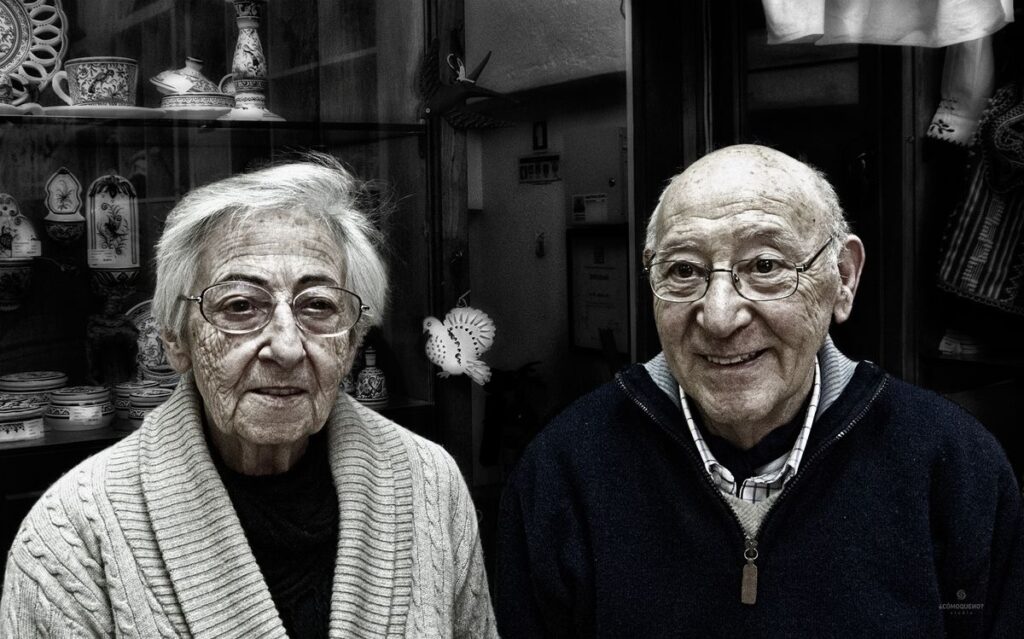In the quiet corners of many homes and in the faded memories of many lives, there are elderly parents who sit in silence. Once the pillars of strength, guidance, and unconditional love, they now find themselves forgotten or sidelined in a world that moves far too fast. “Don’t let your parents be alone” is not simply a plea—it is a profound call to conscience, a reminder of the cycle of life, and an invitation to honor those who gave us life.

The Journey from Caregiver to Dependent
From the moment we are born, our parents become our first caretakers, sacrificing sleep, comfort, and personal ambition to nurture us. They are our first teachers, protectors, and cheerleaders. They invest time, money, and heart into shaping who we become, asking little in return. The love they offer is not conditional or transactional—it is instinctual and unwavering.
Yet time changes everything. As we grow stronger and more independent, our parents age. The very hands that once held us with strength begin to tremble. The voices that once gave us confidence may become softer, hesitant. The eyes that once scanned the world for our safety may now struggle to see clearly. This natural reversal of roles is inevitable, but it is also where many of us falter. We grow busy with careers, families, and ambitions, while our parents are left behind—waiting for a phone call, a visit, or a moment of companionship.

The Emotional Cost of Loneliness
Loneliness is one of the most silent but damaging afflictions that can affect aging parents. It’s not just about being physically alone; it’s the emotional isolation—the feeling that they are no longer needed, no longer seen, no longer heard. This kind of loneliness leads not only to mental and emotional suffering but also to physical decline. Research has shown that elderly individuals who experience prolonged loneliness are at a higher risk for depression, cognitive decline, heart disease, and even premature death.
While many elderly parents may not express their loneliness directly—out of pride, dignity, or a desire not to burden their children—the signs are often there. Fewer smiles, shorter conversations, repeated stories, and long pauses between visits are all indications that something deeper may be wrong. Just as they once watched over us without us asking, it is now our duty to be attentive, present, and responsive without needing to be asked.
The Myth of Independence
Modern culture often emphasizes independence and self-sufficiency. There’s pride in “doing it on your own,” and many people equate dependence with weakness. This cultural value, while useful in encouraging personal responsibility, can sometimes become harmful—especially when it leads to the neglect of family ties. We mistakenly assume our parents want to be left alone because they rarely ask for help. But in truth, many parents downplay their needs out of love for their children. They want us to focus on our lives, our families, and our dreams. They remain silent, even when they long for company, for conversation, or simply a warm hug.
It’s time to reframe this notion of independence. True strength lies in connection. Asking for help, giving help, and being there for one another are not signs of weakness—they are markers of emotional maturity and deep familial love.
Simple Acts, Profound Impact
Being present in our parents’ lives doesn’t always require grand gestures. A ten-minute phone call can brighten their entire day. A Sunday lunch can become the highlight of their week. Helping with errands, sharing old memories, or watching a favorite TV show together can restore their sense of belonging and relevance. In the age of technology, even those living far away can stay connected through video calls, voice notes, and messages. The key is consistency and sincerity. It’s not about perfection—it’s about presence.
Balancing Life and Responsibility
Many adults today face the challenge of being part of the “sandwich generation”—caring for their children while also supporting their aging parents. It is an enormous emotional and logistical responsibility. But rather than viewing this as a burden, it can be seen as a sacred role—a chance to give back some of what we received in abundance.
Balance does not mean sacrificing everything. It means prioritizing what matters. It means setting boundaries at work to ensure time for family. It means involving children in the care of grandparents, so love and respect are passed down through generations. It means remembering that no professional achievement, social status, or financial milestone will ever replace the love we share with those who raised us.

Understanding Their World
As our parents age, they often face a world that has changed beyond recognition. The technology they struggle to use, the news they find confusing, the rapid shifts in culture—all contribute to a sense of disconnection. When we include them in our lives, we help bridge that gap. We help them adapt, we learn from their stories, and we preserve their sense of identity.
Moreover, elderly parents carry with them a wealth of wisdom and history. Their life experiences—through wars, migrations, personal losses, and triumphs—offer valuable insights. When we take time to listen, we not only show them respect, but we also gain a deeper understanding of our own roots and values.
The Power of Gratitude
Gratitude is not just saying “thank you”—it’s living in a way that honors what was given. Our parents didn’t just give us life; they gave us everything that life could offer—comfort, security, encouragement, and resilience. They held our hands during the darkest nights and celebrated our smallest victories. Remembering and acknowledging their sacrifices is not a duty; it’s a privilege.
We express gratitude not only through words but through time, care, and emotional availability. Visiting them, involving them in decisions, celebrating their birthdays and anniversaries, and remembering what matters to them are all ways of saying, “You are not alone. You still matter.”
A Future Without Regret
One of the greatest regrets people have later in life is not spending enough time with loved ones. Careers, obligations, and distractions will always be present, but the time we have with our parents is limited. Their presence, though sometimes taken for granted, is not eternal. Realizing this can be painful—but it can also be motivating.
Now is the time to say what needs to be said. Now is the time to forgive, to connect, to appreciate. The hugs we give today, the memories we create now, the love we share while they’re still with us—these are the treasures that will comfort us long after they’re gone.
Honoring Legacy
Even if one’s relationship with their parents has been strained, there is still space for healing. Every person carries both light and shadow. Acknowledging our parents’ humanity—their flaws as well as their love—allows for a more compassionate relationship. Honoring their legacy doesn’t mean denying the past; it means choosing love in the present.
For those whose parents have passed, “not leaving them alone” can take the form of honoring their memory—visiting their resting place, continuing family traditions, or telling stories to the next generation. The bond between parent and child does not end with death. It transforms and continues through memory and love.
Conclusion: Love Is Presence
In the end, the most valuable thing we can offer our parents is not money, gifts, or even comfort—it is presence. The simple act of being there, of choosing to include them in our lives, of holding space for their feelings, thoughts, and fears—is an act of love more profound than words.
“Don’t let your parents be alone” is not just a slogan—it is a compass for how we should live. In a world that often celebrates independence and forgets the aging, it reminds us of our roots, our responsibilities, and our humanity. Let us be the ones who remember. Let us be the ones who show up. Let us give back not out of obligation, but out of overflowing love.
Because one day, we will be in their place. And the love we give now will echo forward, shaping the world for generations to come.


